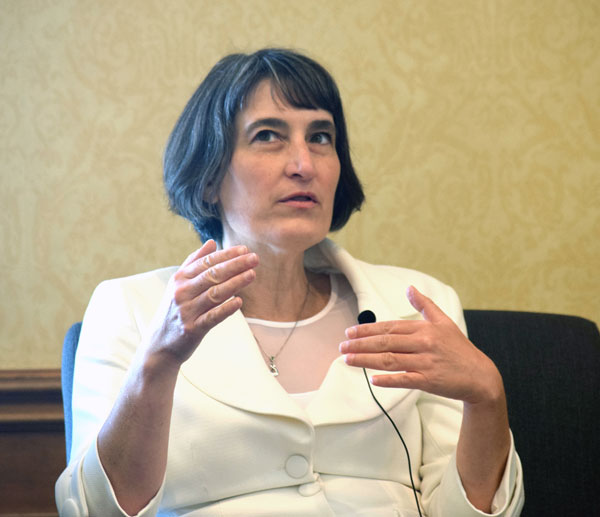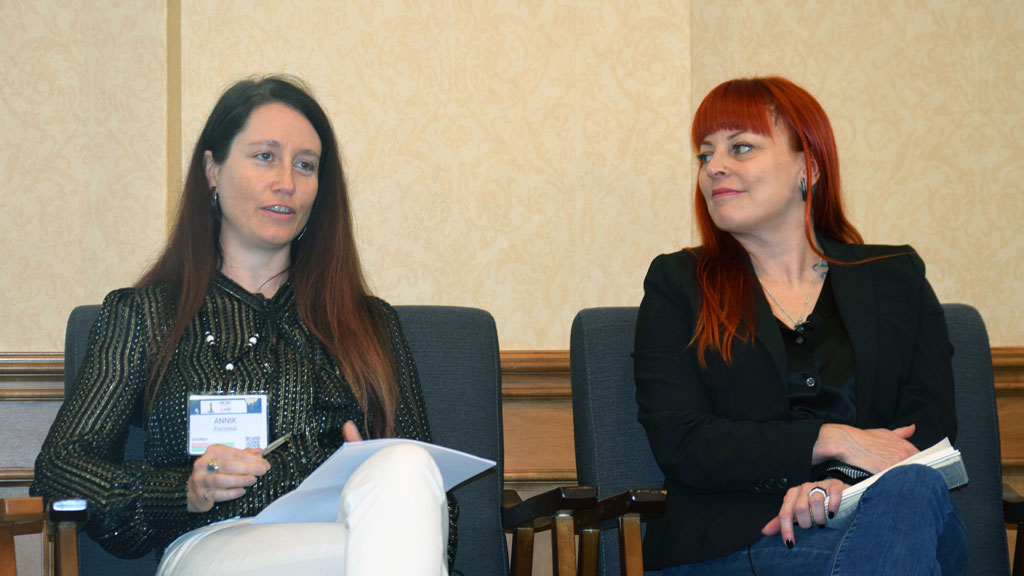Four women from diverse corners of the construction sector offered a broad range of prescriptions to boost recruitment and retention of females in the trades during a panel session at the recent Mechanical Contractors Association of Canada (MCAC) conference in Halifax.
Delegates heard from Canadian Apprenticeship Forum (CAF) director of research and programs Emily Arrowsmith that the pandemic severely interrupted one cohort of apprentices, with registrations down 27 per cent in 2020, and that given weak completion rates, the sector needs to recruit approximately 250,000 apprentices over the next five years to ensure that around 125,000 new journeypersons emerge to meet demand across the Red Seal trades.
“The periodic recruitment challenges we used to have are now becoming a chronic problem, where we just don’t have enough apprentices to meet the potential demand,” said Arrowsmith.
“Completions are expected to slow over this time period…we’re going to have troubles in Alberta, Saskatchewan, Manitoba and Atlantic Canada.”
The Sept. 29 session was billed as Recruitment and Retention of the Next Generation.
A general theme was that there have been extensive awareness efforts of the need to recruit workers from underrepresented groups, but beyond the talk, as next steps stakeholders need to understand what programs are effective and human resources professionals need to become better communicators.
Panellist Brandi Ferenc is a licensed refrigeration mechanic/gas fitter journeyperson who teaches part-time in the HVAC program at Georgian College as well as working for Support Ontario Youth as a mentor. She has 20 years of insights into workplace culture.
Too often, said Ferenc, workplaces lack effective communications mechanisms. Women often want to take the next step in their careers but there are few opportunities to ask, “Can I get in on that job?” she said.
Similarly, Ferenc said, there’s often a disconnect between senior mechanics and the apprentices coming in.
“It does feel too much like we’re just trying to throw a body in to…keep them busy.”
She also laments that firms do not seem to understand their retirees are often not given opportunities to pass on a lifetime of knowledge.
“All of this knowledge is just walking away,” said Ferenc.
Construction culture may be slow to evolve, said panel moderator Rob LeForte, but across the country apprenticeship programs are being put into place and governments and agencies like the CAF are developing resources to address the recruitment problem.
The CAF, he said, is helping to “understand better what it is apprentices are facing and what the people going through them are undertaking, how employers are relating to their apprentices and bringing people on, and where it all fits in the post-secondary space.”
Arrowsmith highlighted resources such as the Skilled Trades Network and the Aboriginal Apprenticeship Board and described how the federal government is stepping up with increasingly lucrative grants.
But the whole system “needs to be holistic” with more tools given to employers besides grants.
Panellist Annik Forristal, a construction lawyer and partner with McMillan, addressed the difficulty some women in construction have in achieving work-life balance.
Women in the trades need to be raising issues of work-life balance with their employers as a step towards improving communication, Forristal said.
“If you have a conversation or there’s some kind of accommodation that we can make, I think that is the first step,” she said.
Forristal is also a major advocate of sponsorship with a firm, beyond mentorship. A sponsor is someone, perhaps a successful male, who has “skin in the game” and aggressively promotes the career of a colleague.
“That creates a huge chain reaction in terms of kick-starting your career,” she said.
Forristal acknowledged her sponsor at McMillan, Geza Banfai.

The fourth panellist, Beth Jacome, director of human resources for Plan Group Inc., also stressed the importance of HR departments communicating with their young talent to ensure they have a solid career plan in place. A young woman on a construction jobsite will not be a strong candidate for retention if no-one talks to her and she is “sweeping floors,” Jacome said.
“They want to know that they have a future within the organization,” she said.
“It is important that we’re creating opportunities for all individuals.”
Follow the author on Twitter @DonWall_DCN











Recent Comments
comments for this post are closed